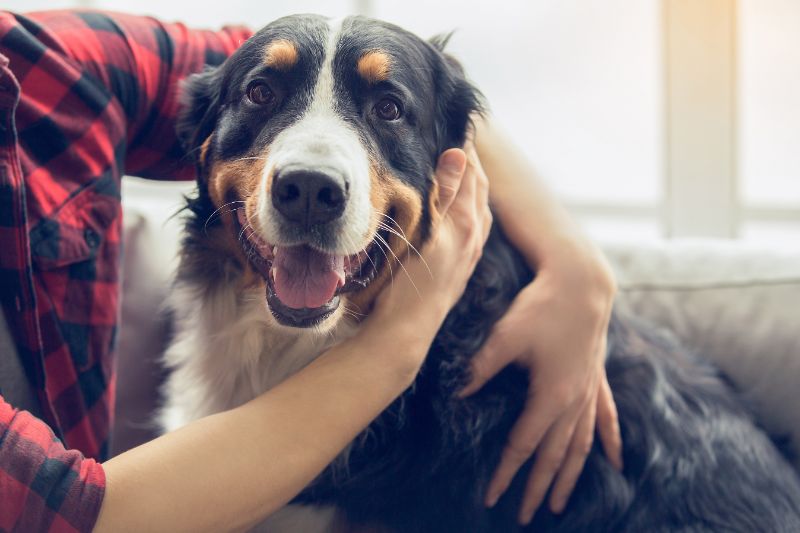The Big Bang: Preventing Noise Anxiety in Pets

Fireworks, thunderstorms, summer parties, and the list goes on. Loud noise this time of year is common as we celebrate graduations, ball games, the Fourth of July, and more. It is not so surprising, though, that animal shelters wind up with more lost pets after these loud events.
If your pet is anxious every time there’s a clap of thunder or firecrackers popping in the neighborhood, you’re not alone. Noise related anxiety in pets is a serious concern for many pet lovers and the team at Volunteer Veterinary Hospital is here to help alleviate the problem.
Noise Related Anxiety in Pets
Anxiety and noise phobias can cause your pet not just the discomfort of fear but can also set them up for chronic symptoms, not to mention the risk of becoming lost or injured. Animals are highly attuned to sounds and can hear at higher decibels than we can, which explains why noise can be detrimental and even painful to their sensitive ears.
While you may notice your pet shaking when the neighbor jams loud tunes, shaking or trembling isn’t the only sign of fear. Noise anxiety can cause your pet to display the following symptoms:
- Urinating or defecating inside
- Panting
- Drooling
- Pacing
- Trembling
- Howling, vocalization
- Hiding
- Chewing, scratching, and other destructive behaviors
- Trying to escape
If your pet has chronic anxiety or a combination of these, there are many things we can do to alleviate some of the symptoms. From behavior modification to medications and supplements, there are options available to ease these behaviors. Please contact us for a behavioral consult and examination.
At-Home Help for Noise Anxiety in Pets
The first thing to do when your pet has anxiety is to understand what causes their fear. Some pets only become afraid during storms, while others hate all loud noises, including sirens. This can help you avoid or better prepare for these upcoming events.
- Find a secure place for your pet, where they can’t get out. It should be a place where they feel comfortable. Add their favorite toys, blankets, and a few treats.
- Provide noise-reducing or masking sounds, such as a radio, TV, or a white noise machine to help reduce the loud noise from outside.
- Stress reducing sprays, such as Bach’s Rescue Remedy, can help ease distress.
- The Thundershirt, which is a form-fitted vest that puts slight pressure on the torso, is also a great option for pets with noise anxiety.
If your pet has chronic anxiety or is not responding to these changes, contact us. Some medications can be useful for more serious cases of noise anxiety. (Oh, and don’t forget to make sure your pet’s microchip and tag information are up-to-date, should they get away from the home or yard.)
Do you still have questions about noise related anxiety in pets, please do not hesitate to call us!

